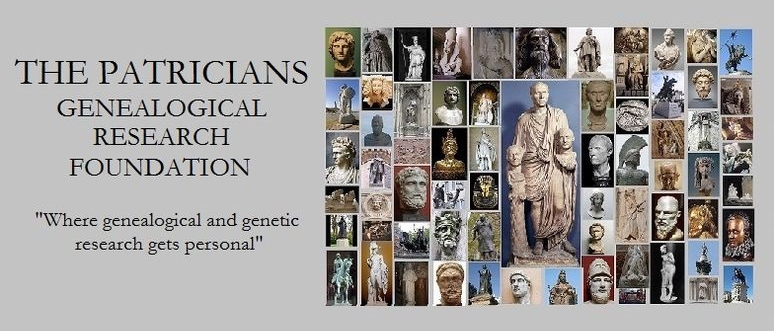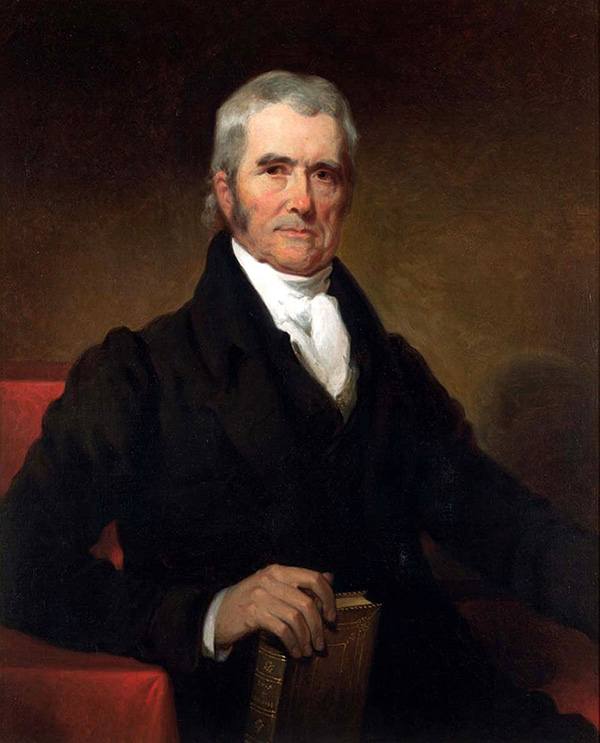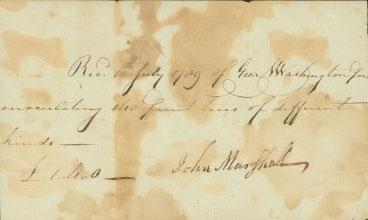
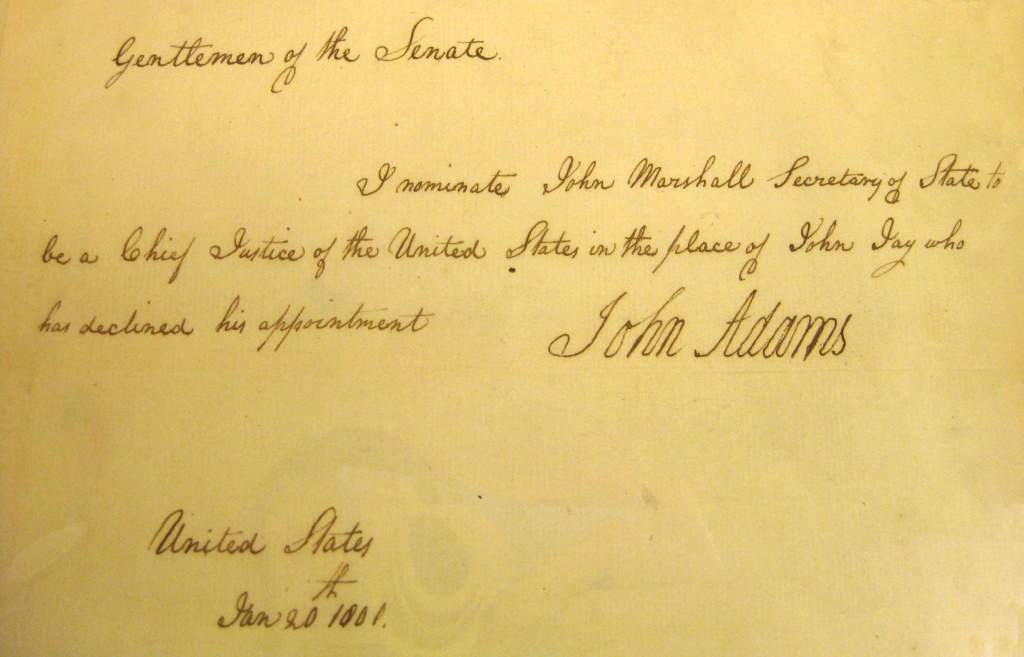
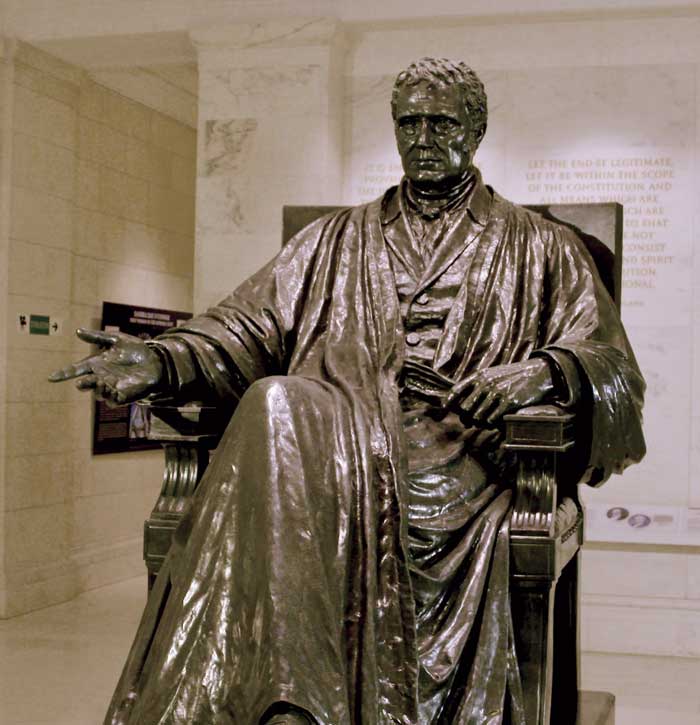
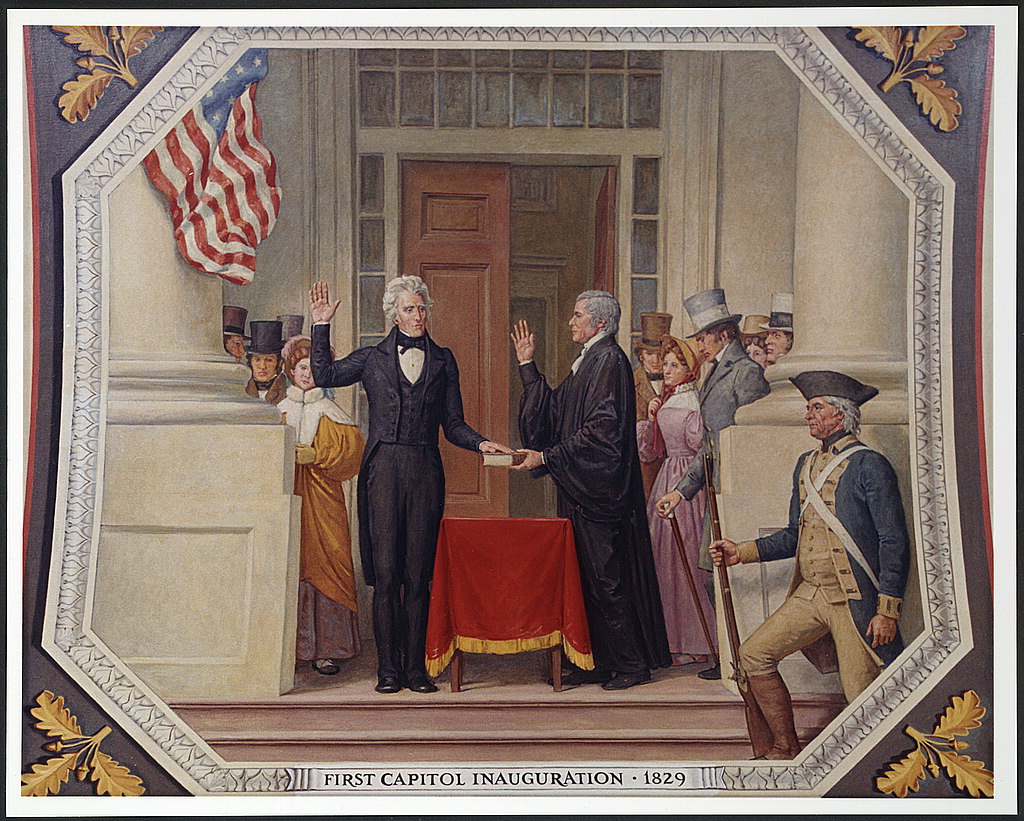
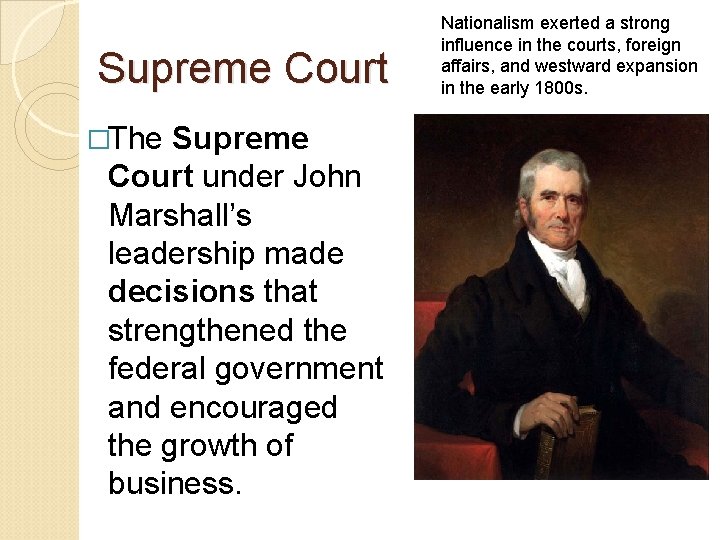
John Marshall commanded a Virginia regiment as a captain during the Revolutionary War and developed a friendship with General George Washington (1732 – 1799). He was present during the winter at Valley Forge (1777-1778) and fought in the battles of Brandywine (1777) and Monmouth (1778). After the war, Marshall studied law at the College of William and Mary. Admitted to practice law in Virginia in 1780, his law practice thrived and he entered into politics and won an election to the Virginia legislature in 1782.
When serving as U.S. Secretary of State, President John Adams (1735 – 1836) appointed him to the position of U.S. Supreme Court Chief Justice in 1800. During his tenure of over 34 years, he elevated the power and importance of the Supreme Court to a position on par with the Executive and Legislative branches of the federal government and established the Supreme Court as the final judicial interpreter of the U.S. Constitution.
John was an agnatic descendant of Ganger Hrólf “Rollo” (860 – 930) 1st Duke of Normandy, Count of Rouen who was the agnatic forebear of Sir William le Marshal, 1st Earl of Pembroke (1146 – 1219). Nn agnatic cousin of George Catlett Marshall, KB (1880 – 1959) 1st Five-Star General, they were both direct paternal descendants of Edward Collins (1603 – 1689) 1st Deacon of the Congregational Church of Cambridge.
Following the death of King John in 1216, William le Marshal served as Regent of England and Protector of King Henry III until 1219. The pivotal role he played as the de facto ruler of England in expelling French invasion forces, particularly with his victory over Comte du Perche at the Battle of Lincoln (1217), saved both the Plantagenet monarchal dynasty and the English language from extinction. If French Prince Louis VIII Capet’s army had prevailed, that would also have spelled the end of British sovereignty, perhaps indefinitely. The Plantagenet dynasty and the British monarchy owed him and future Earl Marshals an everlasting debt of gratitude. In the same vein, both John Marshall and George Catlett Marshall represent his legacy as heroic protectors of their respective visions of democratic government in the face of adversity.
Related ancestral blog articles
9 U.S. Supreme Court Chief Justices
21 Founding Fathers of the United States of America
Collins American Revolutionary War Patriots (187)
Norse-Norman-Anglo-Saxon Ancestors
John Marshall, 4th U.S. Supreme Court Chief Justice
Birth 24 Sep 1755 in Germantown, Fauquier, Virginia, USA
Death 6 Jul 1835 in Philadelphia, Philadelphia, Pennsylvania, USA
Ancestry.com citation/Lineages
5th cousin 7x removed MARKHAM-COLLINS
5th cousin 8x removed POTTER-TRIPP-OUTWATER-COLLINS
Sources
John Marshall: The Man Who Made The Supreme Court
Supreme Court Historical Society
John Marshall, the Great Chief Justice
The Patricians, A Genealogical Study – Ebook Editions US$5.95
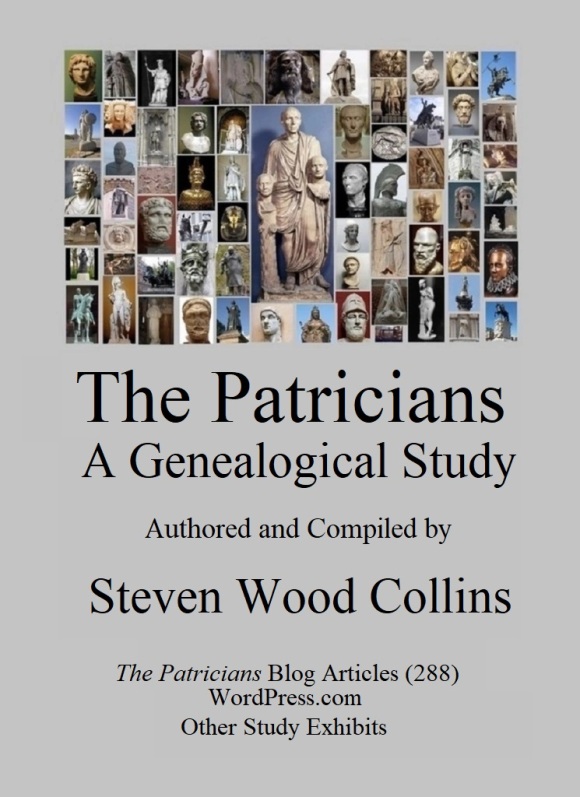

Steven Wood Collins (1952 – ) Antiquarian, Genealogist, Novelist
